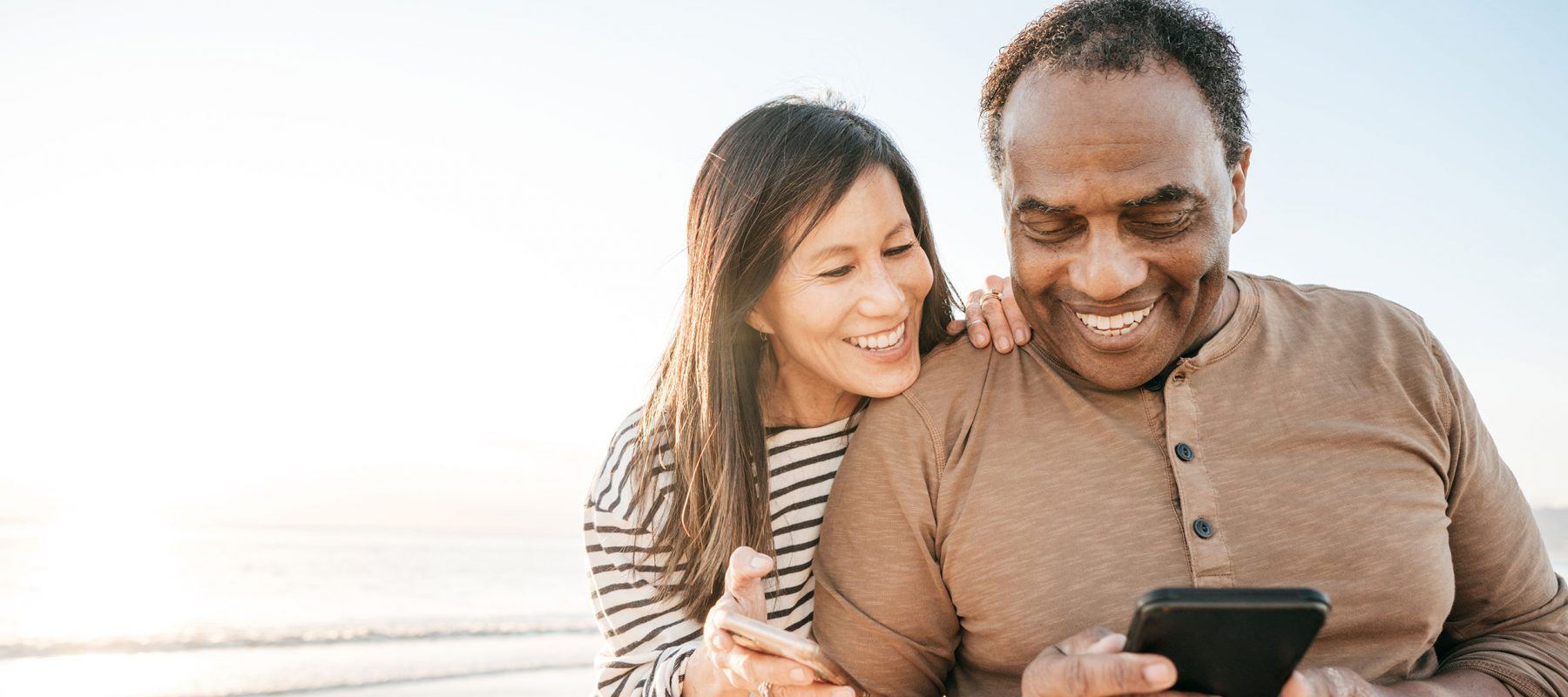THE BIGGEST GRIPES ABOUT MODERN DATING
Cora Boyd

We’re in a unique moment in dating right now. Various factors and realities have rendered the standardized courtship script passé. The advent of online dating and social media, hookup culture, rapidly shifting gender politics, a digital culture of convenience and instant gratification, and expanding socially sanctioned possibilities for how to format the exclusivity of relationships have shaped a lovescape that we do not currently have many reliable maps to help us navigate.
The familiar sequence is no longer a given: boy meets girl, boy asks for girl’s number and calls her up to invite her to dinner and a movie, boy and girl sleep together after a socially acceptable number of dates, and so on. Much of this change is inarguably positive and opens up space to include an array of experiences, preferences, and identities that have not historically had a voice in the public conception of love. But disturbingly, despite being more “technically” connected than ever, rates of loneliness, anxiety, and depression have never been higher. As psychotherapist Esther Perrell says, the quality of our relationships determines the quality of our lives. We are clearly experiencing a disconnect on a large scale, and dating is only one part of it.
Given all this, it’s no wonder that an entire “dating industry” of matchmakers, coaches, consultants, app developers, and event planners is on the rise. As a dating coach, I’m a part of this emerging industry striving to provide an arsenal of resources and support to help people date in a meaningful way.
In my dating coaching practice, and in my prior position as a matchmaker for a national company, I’ve interviewed hundreds and hundreds of people all over the country about dating. These interviews have given me a tremendous amount of insight into the overarching patterns and also the idiosyncrasies of what it means to date in 2019.
I’ve built my coaching practice on the foundation of these insights and also on my training in positive psychology, which I studied under Tal Ben Shahar. Through my research, I’ve developed a highly personalized methodology to help clients build self-awareness and communication skills, identify and change the behaviors and beliefs that are holding them back from the love lives they want, navigate the particularities of modern dating culture, and genuinely find enjoyment and fulfillment in the process.
Despite dreary statistics and general frustration in the modern lovescape, I’m optimistic about the future of love and dating. The dismantling of one standard courtship script is an exciting opportunity for each person to take ownership of writing their own script, authoring their own approach, and living out their own love story.
Some clients come to me out of curiosity. Some come to me because they are avid self-actualizers on a mission to optimize every area of their lives. Many come to me because they are in a state of total demoralization and they are one step away from writing off the whole “love” thing once and for all. Every single one of them has realized that whatever approach they’ve been taking so far has not been working for them, so they might as well try something different.
I’ve heard every complaint about dating under the sun. And although I understand that dating can be fully frustrating at times, I believe that the skillset one needs to date in 2019 is actually quite simple. It is a matter of being proactive, embracing discomfort, and thinking, advocating, and taking responsibility for yourself.
The practice of taking personal responsibility instead of shifting blame onto anyone and anything around you is an uncomfortable one. It is also the practice through which you reclaim your agency and create a love life you are legitimately stoked about.
Here are some of the most common gripes I hear about dating in my coaching practice.
“No one gives anyone a chance.”
Today’s daters have access to so many more romantic prospects than our ancestors could have imagined. The sheer quantity of singles online is impressive. And as more women enter and thrive in the workforce (although, in my opinion, we are not nearly where we need to be yet) the average marriage age is older than it’s ever been, and many people are opting to forego marriage altogether. With more prevalence of polyamory, many people choose to continue to date outside of established partnerships.
In short, the prospects are plentiful and singles abound. So shouldn’t that make dating easy? Not exactly. In practice, the seemingly endless supply of options can lead to a state of paralysis referred to as the “paradox of choice.” Why invest in one person if there could be someone better just three swipes away? When your date shows a side of themselves you don’t like, or when a conflict comes up, why stick around and work through it when you could move onto a fresh untarnished page with someone else and avoid the discomfort and work altogether?
I believe that this paradox of choice also affects how we show up on dates and our openness to building a connection with someone. The “shopper approach” that many people operate from in today’s dating culture assumes that connection is something you either have or don’t have with someone. While it’s true that you’ll have more immediate chemistry with some people more than others, the connection is not just something you “have” with someone, it’s something you build together by choosing to invest in learning about each other, intentionally building rapport and trust, and sharing experiences together.
In other words, connection is something you can create with someone when you both choose to give a sh*t. So if you can get clear on what connection actually is, and how to create it, you can take responsibility on your end for creating better connections on dates. These are skills I work on with my clients.
“Everyone is flaky.”
Another gripe I hear a lot about is the lack of follow-through and accountability. This behavior is so pervasive that we’ve coined the term “ghosting” for when someone disappears and ends contact and communication without indicating why. The lack of investment due to the paradox of choice is likely at play here, but when it comes to flakiness, lack of follow-through, and “ghosting,” I believe there’s another element in the mix: the absence of social accountability.
Online dating is a truly valuable tool to connect people online, often from disparate social networks and walks of life who would not have met otherwise. Personally, I think this is really cool and exciting. But the potential side effect is that without friends, community, or context in common, there is no one to hold anyone accountable to high integrity communication, behavior, and treatment. This is another way in which the mechanics of modern dating permit the avoidance of discomfort and personal responsibility. The irony is that in avoiding discomfort on a personal level, we create a larger societal discomfort and contribute to a generalized loss of morale and a loop of ghosts ghosting ghosts.
It is up to you to hold yourself accountable to high integrity communication, behavior, and treatment. You may not be able to control what other people do and what choices they make, but you can control your own conduct in such a way that attracts people who value a similar quality of accountability and repel those who don’t. Good riddance!
“So much gets lost in digital translation.”
Preferred digital communication styles vary greatly from person to person. Some people love talking on the phone. Some people prefer to text. Some people will get back to you right away. Others will respond days later if the matter isn’t urgent. Some people use tons of punctuation and emojis. Others craft run-on sentences long enough to drive an English major like me to the point of insanity. Is this all sounding a lot like a Dr. Seuss book?
The ways that we prefer to communicate digitally are cultural, generational, and personal. With so much variance in digital communication style and so many platforms available to communicate through, it is easy to misinterpret someone’s tone, message, or intention virtually. Many budding relationships that could have been great go south because of digital miscommunications.
The solution here is to be upfront about the mode and the frequency of how you like to communicate digitally, to challenge your own negative interpretations of texts and posts, and to make a point to have sensitive conversations in person or on the phone.
To my clients, I recommend remembering that a digital connection is not the same thing as a real-life connection, treading carefully with how much they’re communicating digitally with a new flame, and reserving text for setting up logistics and a little bit of fun banter. I prefer phone calls and voice memos over exhaustive texting. But of course, that’s a personal preference.
“Social media creates way too much pressure.”
Building off of digital communication, the world of social media has its own nuanced language and provides a treasure trove of romantic smoke signals, indicators of interest, faux pas, passive-aggressive and not-so-passive-aggressive digs to subtly communicate to your crush in the hopes they’ll get your message. And sometimes with the hope that they won’t understand what you mean at all and they’ll be so intrigued they just have to text you to find out.
There are different codes of conduct for someone you’re interested in, someone you’re starting to date, and someone you’re in a relationship with. And guess what! No one fully agrees on what these codes of conduct are. When do you add your new “boo thang” on Instagram? Who slides into whose DMs? What does it mean when someone “deep likes” one of your pictures (likes a picture you posted a while ago)? Is it ok if your boyfriend follows hot models and still likes his ex-girlfriend’s posts? When you break up with someone, do you unfriend and unfollow each other? When you get into a relationship, do you have a conversation about what your social media presence as a couple will look like?
Like online dating, social media is a tool for connection, and you get to decide how and if you utilize these tools (and for a primer, check out my Guide to Instagram Dating). As with digital communication in general, everyone uses social media differently, and you may never know if someone’s “thirst trap” (an attractive picture posted to solicit attention and advances) is intended to catch your eye in particular.
To break it down simply, the only thing you really need to know is that on the Internet, attention is the greatest commodity. If someone is giving you a lot of attention on social media, it’s likely that they’re interested in you. And if you want to indicate to someone that you’re interested in them, give their social media attention and throw them some “likes.”
“No one meets ‘organically’ anymore.”
Although statistically most couples still do meet in person, I’ve noticed a rampant belief that no one meets in real life anymore. In my observation, a lot of this belief is hype. But it is true that online dating provides a relief from the possibility of a real-time rejection, and many people do opt to hide behind their phone when making their interest known.
What’s interesting to me here is another fallacy that the problematic mechanics of modern dating operate on: the definition of meeting “organically.” When queried further, I’ve discovered that many people use the word “organic” to refer to some fantastical and effortless, instantaneous connection. They want to meet someone in line at the coffee shop when their hands brush reaching for the last quiche and an electric shock of knowing jolts through their bodies.
What we forget is that any “organic” meeting is actually engineered on some micro level. If you meet someone on the street or at a bar or a party or a conference, that scenario requires at least one of the people risking the discomfort of potential rejection and opening up a conversation. What we forget is that perhaps one person reached for the quiche on purpose when they saw the other person reaching for it. What we forget is that even if both parties genuinely bumped into each other by accident reaching for the same quiche, they both had to take micro risks to make a joke that invites the other person into a conversation, or ask for the other person’s contact information. You cannot meet someone “organically” without risking discomfort, however small that risk is.
The people whose faces you swipe through on dating apps are the same people who go to the grocery store and walk the streets and frequent venues and also complain that no one meets “organically” anymore. How refreshing could you be to someone if you were the one to take the small risk and engineer an “organic” introduction?
“I don’t know how to navigate the shifting gender politics.”
Dating is a space where interpersonal and gender dynamics intersect. In light of the #metoo movement and various events and conversations about gender politics, identity, and equity on the public radar, it’s no wonder that dating, especially heteronormative dating, is undergoing some massive growing pains. I primarily coach men because I know how much we need resources, education, spaces, and industry that support moving through these growing pains so that we can come out stronger.
Most of history has reinforced one particular romantic dynamic between a man and a woman wherein the man is the dominant pursuer and the woman is the submissive receiver. There’s a lot of beauty in a traditional heteronormative relationship, and many of my own preferences adhere to them. But I feel extremely passionately that we need to remember that heteronormative preferences are just that—one set of preferences among many other preferences, none of which are inherently worse or better.
The traditional code of conduct in dating is what’s most familiar to our society, and it’s comforting because it provides a clear point of reference for how to behave. The problem isn’t heteronormativity, it’s that we’ve viewed heteronormative relationships as the only viable option and we’ve tangled up some “traditionalism” with what is actually misogyny and oppression.
It makes complete sense that our shifting conversation around gender politics has disrupted the way that we are accustomed to dating and, for many, has created confusion and panic as the familiar point of reference is under question. I have coached many men who are so confused about what kind of behavior is okay and what’s not. They are so afraid of crossing the line (and aren’t really sure where the line is) that they opt not to take any action or agency in their love lives and end up completely defeated and alone.
The line, gents, is respect and consent. You are well within your bounds to be proactive in your love life and make your interest known, but you must be respectful, you must be able to take “no” for an answer, and you must understand safety and power dynamics and never abuse either one.
In order to address this dating gripe, we must have open conversations about gender politics and approach these conversations from a place of learning. If you’re a gent reading this, and you’re confused about anything I just said, book a complimentary introductory call with me, I’d love to talk about this with you.
“It feels like work.”
In her book Labor of Love: The Invention of Dating, Moira Weigel says that “if marriage is the long-term contract that many daters still hope to land, dating itself often feels like the worst, most precarious form of contemporary labor: an unpaid internship.”
This rings true for the most common gripe I hear about dating in my coaching practice: it feels like work.
I’m here to tell you that dating is work, and also that it is the most worthwhile and rewarding kind of work you can do: self-work. Dating takes time, effort, money, emotional labor, research, and trial and error. It is a practice of thinking and acting for yourself, learning what does and does not work for you, iterating as you go, and striving to show up as the best version of yourself time and time again. If you want to be in “the arena” of love, as Brené Brown says, your only option is to embrace the work and to embrace the discomfort. Joyfully, with curiosity, and of course, always with a sense of humor.




